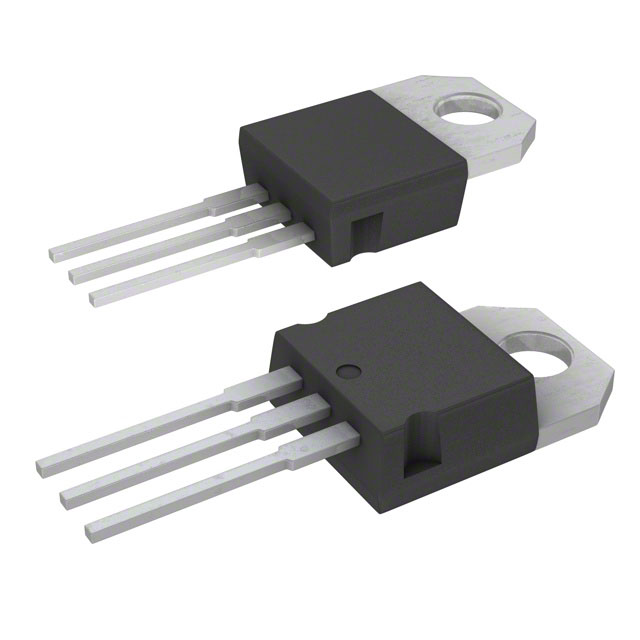TIP110 Transistor
Product Overview
The TIP110 transistor belongs to the category of power transistors and is commonly used in electronic circuits for amplification and switching purposes. It is characterized by its high current capability, making it suitable for applications requiring high power amplification. The TIP110 is typically packaged in a TO-220 plastic package and is available in various quantities per package.
Specifications
- Maximum Collector-Emitter Voltage: 60V
- Continuous Collector Current: 2A
- DC Current Gain (hFE): 1000
- Package Type: TO-220
- Quantity per Package: Varies
Detailed Pin Configuration
The TIP110 transistor has three pins: 1. Base (B) 2. Emitter (E) 3. Collector (C)
Functional Features
The TIP110 transistor offers high current gain and low saturation voltage, making it suitable for power amplifier and switching applications. Its robust construction allows it to handle high currents and voltages with ease.
Advantages and Disadvantages
Advantages
- High current gain
- Low saturation voltage
- Robust construction
Disadvantages
- Relatively large package size
- Limited maximum voltage rating
Working Principles
The TIP110 operates based on the principles of bipolar junction transistors. When a small current flows into the base terminal, a larger current is allowed to flow between the collector and emitter terminals, enabling amplification or switching of electrical signals.
Detailed Application Field Plans
The TIP110 transistor finds extensive use in various applications, including: - Audio amplifiers - Power supplies - Motor control circuits - LED drivers - Switching circuits
Detailed and Complete Alternative Models
Some alternative models to the TIP110 transistor include: - TIP120 - TIP121 - TIP122 - TIP125
In conclusion, the TIP110 transistor is a versatile component with high current capability, making it suitable for a wide range of electronic applications.
Word Count: 270
قم بإدراج 10 أسئلة وإجابات شائعة تتعلق بتطبيق TIP110 في الحلول التقنية
Sure, here are 10 common questions and answers related to the application of TIP110 in technical solutions:
What is TIP110?
- TIP110 is a general-purpose PNP bipolar junction transistor (BJT) commonly used for amplification and switching applications.
What are the typical applications of TIP110?
- TIP110 is often used in audio amplifiers, motor control circuits, and general purpose switching applications.
What is the maximum collector current rating of TIP110?
- The maximum collector current rating of TIP110 is 2A.
What is the maximum collector-emitter voltage rating of TIP110?
- The maximum collector-emitter voltage rating of TIP110 is 60V.
How do I connect TIP110 in a switching circuit?
- When using TIP110 as a switch, the base is typically connected to a microcontroller or other signal source, the emitter is connected to ground, and the load is connected between the collector and the positive supply voltage.
Can TIP110 be used for high-power applications?
- TIP110 is not suitable for high-power applications due to its relatively low collector current and voltage ratings.
What are the key characteristics of TIP110 for amplifier applications?
- TIP110 has a high current gain (hFE) and low saturation voltage, making it suitable for low-power audio amplifier designs.
Is TIP110 suitable for use in automotive applications?
- TIP110 is not recommended for automotive applications due to its limited voltage and current ratings.
What are some common alternatives to TIP110?
- Common alternatives to TIP110 include TIP120, TIP121, and TIP122, which have higher current and voltage ratings.
Where can I find the datasheet for TIP110?
- The datasheet for TIP110 can be found on various semiconductor manufacturer websites or distributor platforms.
I hope these questions and answers are helpful for your technical solutions involving TIP110! If you have any more specific questions, feel free to ask.


